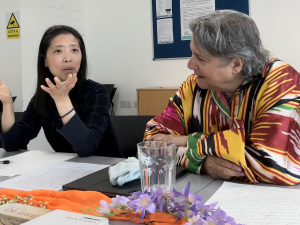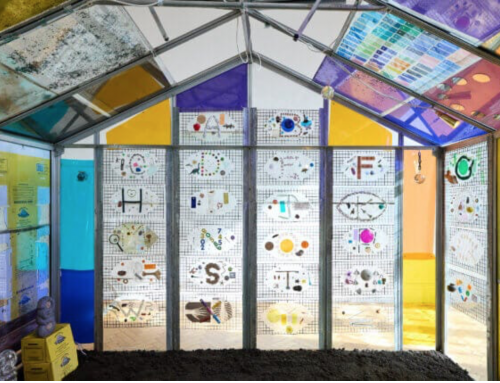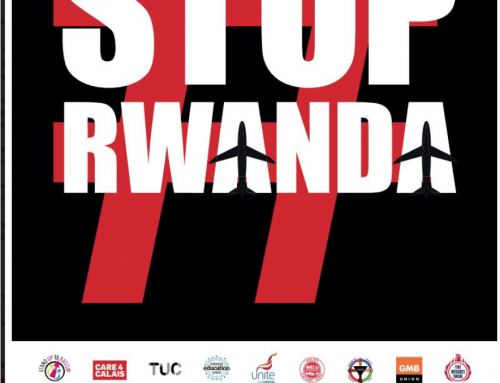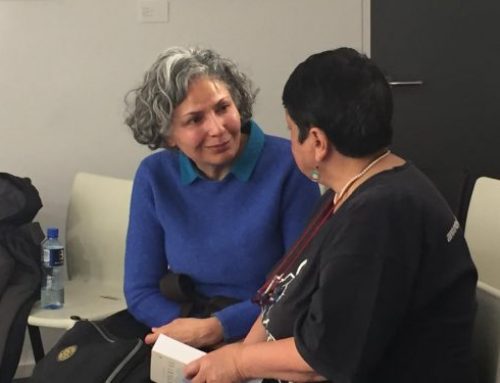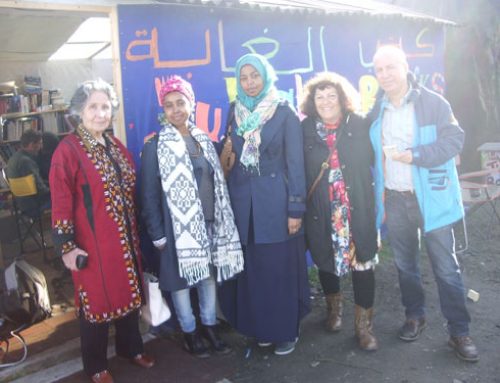The theme of this year’s Refugee Week was compassion. Compassion is sorely needed at a time when the UK Government has created an increasingly difficult situation for asylum seekers and refugees through its recent Nationality and Borders Act and is now intent on passing the Illegal Immigration Bill which will further erode human rights protection for refugees.
Exiled Writers Ink held two Refugee Week events. One was a workshop for local refugees and other displaced people in Colindale with Barnet Libraries, led by Yvonne Green who is a poet, translator and teacher. A Refugee Week event titled ‘Writing Hurts’ with three poets, Dr Fuad M. Fuad, Dr Jennifer Langer and Ziba Karbassi, took place at Keats House in the borough of Camden which has been declared a borough of sanctuary for those fleeing war and persecution.
Colindale is an area that has long been inhabited by those who originally came as refugees and now new refugees are arriving there and in fact, the workshop was attended by people from Hong Kong, South China and Peru amongst others. Yvonne reported that to loosen the mood, the workshop began by singing subtitled songs chosen from You Tube in Mandarin and Cantonese which got people feeling and articulating unfamiliar rhythms of speech and music. Each of the attendees then read her poem ‘Your Name’s Never Mentioned’ published in the current edition of Poetry Scotland. Each emphasised different aspects of the work and they then wrote and chose to recite their poems beginning, “My name …”. The variety of their poems was remarkable throughout the evening as a range of exercises were set after different prompts arose from poems read. Yvonne noted that in the creative process English was a common language and poetry a bridge enabling the participants to become increasing comfortable with one another.
It was very special to be in Keats House for our Refugee Week event. Some consider the poet, John Keats to have been both a health and economic refugee when he sought refuge in Rome in 1820. The poet fled creditors and poverty in England but his doctors also recommended that he move to a warmer climate to help his deteriorating tuberculosis condition and so he undertook a difficult journey by land and sea, finally arriving after ten days quarantine in Naples. These days the journey to Italy is a perilous journey for migrants and just the previous week there had been the terrible tragedy of migrants drowning in Greek waters.
We began by asking the audience to speculate on the meaning of the title of our event ‘Writing Hurts’, with some referring to the demanding physical and metal process of writing and others to the painful subject matter the writer needs to confront. The three poets then presented very different poetry.
Fouad M. Fouad, a Syrian surgeon, is a public health activist and a well-regarded poetry. He fled from his city of Aleppo in 2012 and took refuge in Lebanon. He has published five collections, the most recent being Once Upon a Time in Aleppo (Hippocrates Press). The poems record the witness of an outraged doctor and writer in desperate times.
Jennifer Langer is editor of five anthologies of exiled literature and a poet. Her debut poetry collection is The Search (Victorina Press), a search for lost roots and exploration as the daughter of German Jewish refugees who fled Nazi Germany for Britain.
Ziba Karbassi was born in Tabriz, Iran. She has published ten books of poetry in Persian and two books in Italian and English. She has read her work widely across Europe and America and in 2012, she was chosen by the Contemporary Poetics Research Centre at Birkbeck, University of London, as a revolutionary world poet.
It was memorable that Dr Fouad referred to the almost mystical feeling he gained when entering the interiors of patients’ bodies during surgery and a group of his poems focus on parts of the body.
Some humour relieved the tragedy and sadness of the subject matter such as Ziba’s poem in Farsi, Azeri and English which began ‘Oh, Oh, Oh’ in all three languages and which provoked laughter. Fouad’s poem about a restaurant where a waiter dips his dirty finger into the humous made the audience smile as did the sardonic humour in Jennifer’s poem ‘Language of my Homeland’ with the repetition of ‘Naturlich’. The audience also enjoyed saying the repeated lines in her villanelle ‘Rickety House’.
The break, when the audience partook of elderberry juice and strolled in the summer gardens of Keats House, provided a contrast to the challenging subject matter of the poetry. We hope that the audience gained deeper insights into the experiences and sensibilities of those who came as refugees and of those who continue to arrive.

